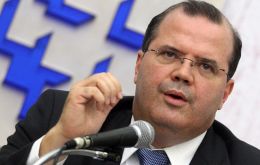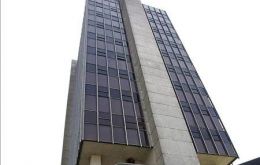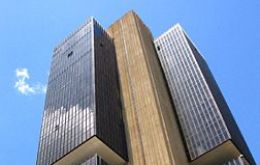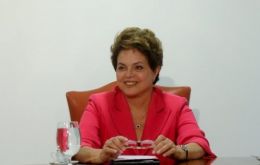MercoPress. South Atlantic News Agency
Tag: Brazilian Central Bank
-
Thursday, July 12th 2012 - 07:27 UTC
Brazil lowers benchmark rate for eighth straight time to 8%

Brazil’s central bank cut its benchmark interest rate for the eighth straight time and signaled it will continue to lower borrowing costs, as spillover from a global economic slowdown limits inflation risks.
-
Tuesday, May 22nd 2012 - 18:50 UTC
OECD anticipated end to weak growth in Brazil but warns about inflation

Weak growth in Brazil seems to be coming to an end, but there are still looming risks in the shape of inflation, credit risk and competitiveness, according to the latest outlook published by the Organization for Economic Cooperation and Development, OECD, on Tuesday.
-
Monday, May 14th 2012 - 05:38 UTC
“Interest rate has been falling not to please Dilma”, says Brazil Central bank chief

The central bank remains independent and the current interest-rate cutting cycle is driven by specific economic factors, not pressure from President Dilma Rousseff, Brazil’s central bank President Alexandre Tombini said in an interview in the Sunday edition of O Estado de S. Paulo.
-
Friday, March 30th 2012 - 07:39 UTC
Brazil monetary authorities suggest benchmark rate could fall to 9% (from 9.75%)

Brazil's Central Bank Monetary Policy Committee (Copom) reaffirmed the likelihood it will continue to cut rates and at the same time perhaps put into question its commitment to the 4.5% inflation target for 2013, according to the quarterly inflation report released Thursday morning.
-
Thursday, March 8th 2012 - 06:06 UTC
Brazilian surprise: basic rate down to 9.75%, lowest in years

Brazil’s Central bank on Wednesday surprised analysts by accelerating the pace of interest rate cuts, bringing borrowing costs to 9.75%, below 10% for only the second time on record as it seeks to revive growth.
-
Tuesday, April 19th 2011 - 03:51 UTC
What is behind Brazil’s high rates: loose fiscal policy, low savings or politics

With Brazil’s benchmark interest rate at 11.75% and prospects of further increases Latin America’s largest economy poses a challenge to economists and analysts. The answers are not only economic but also political.
